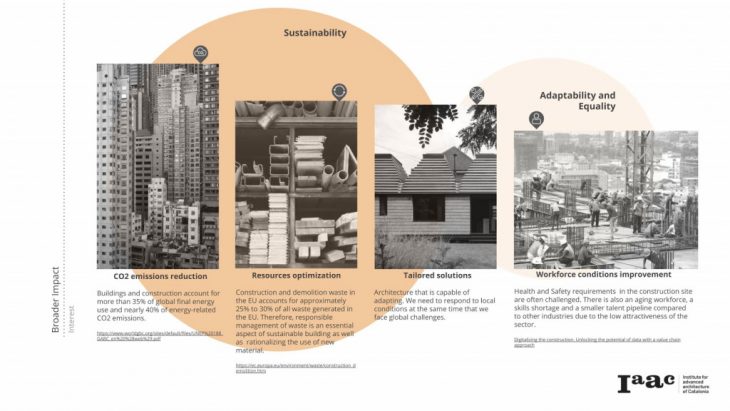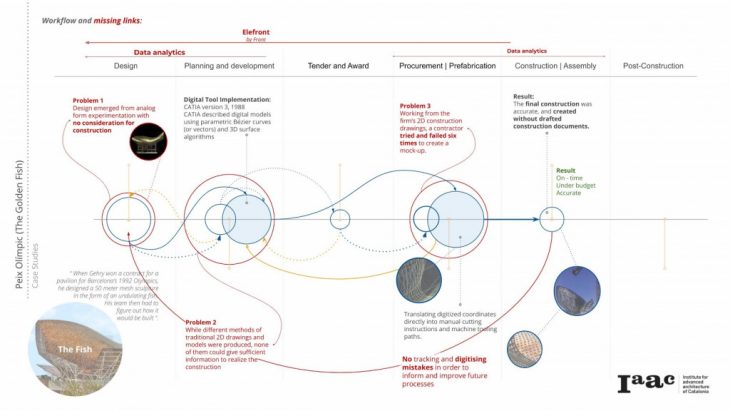IAAC – Master in Robotics and Advanced Construction
Applied Theory I-II-III
Faculty: Mathilde Marengo
APPLIED THEORY I SEMINAR

Credits: MRAC2019/20, Applied Theory, Digitalisation of the Construction Sector, Faculty: Mathilde Marengo, Students: Elena Jaramazovic, Gjeorgjia Lilo, Anna Batallé
Syllabus
The Master in Robotics and Advanced Construction prepares a new generation of interdisciplinary professionals who are capable of facing our growing need for a more sustainable and optimised construction eco-system, with a focus on the emerging design and market opportunities arising from novel robotic and advanced manufacturing systems.
The Applied Theory course aims to give the MRAC students access to the front runners of this multidisciplinary field, who, through a master class format, share the challenges and learnings of their professional engagements in real case applications. Applied Theory is therefore a platform where the students have direct contact with professionals from diverse areas of expertise, furthering their formation and knowledge towards their own personal development in research, the industry and the professional realm in general.

Credits: MRAC2019/20, Applied Theory, Digitalisation of the Construction Sector, Faculty: Mathilde Marengo, Students: Elena Jaramazovic, Gjeorgjia Lilo, Anna Batallé
The course is furthermore oriented towards the development of students’ critical thinking capacities, engaging the students in a series of debates, questioning diverse approaches and possible outcomes, as well as the development of conclusive outputs, buildings towards propositive and innovative visions for practice in relation to robotics and the construction industry, along the three central topics of the Master Program: Materialising with Machines, Scanning and Learning Machines, Human – Machine collaboration.
Learning objectives
The Course is developed in a transversal manner, throughout the entire Master program, following the main topic of each term: Term 1 – Materialising with Machines, Term 2 – Scanning and Learning Machines, Term 3 – Human – Machine collaboration.
At the beginning of the course, the students will partake in 2 master classes run directly by the curator, the first oriented to giving the basics of the applied research methodology, and the second sharing the framework and development of the Master Classes to come, with the aim of initiating the critical thinking process related to the specific topic. These sessions will then be followed by 3 Master Classes, each with a different guest speaker, from the research, industry and professional realms, sharing their diverse expertise and experience, influential to the future of robotics and construction.